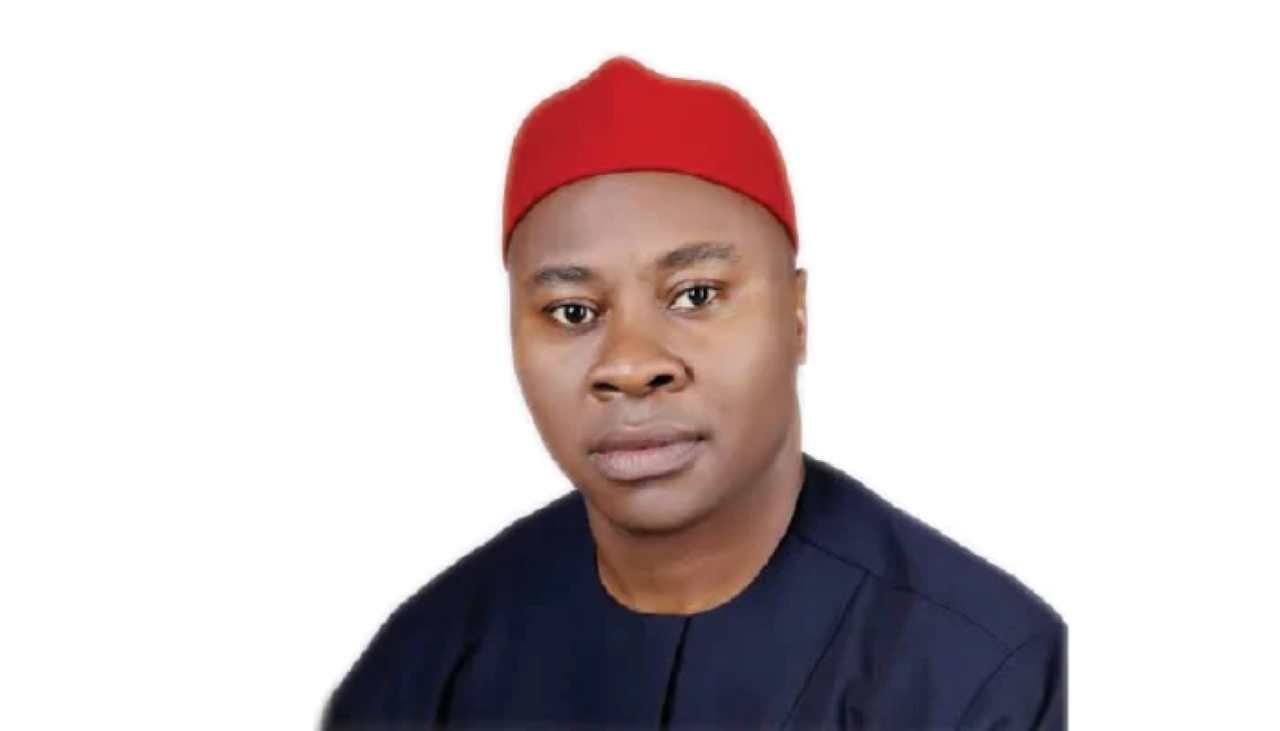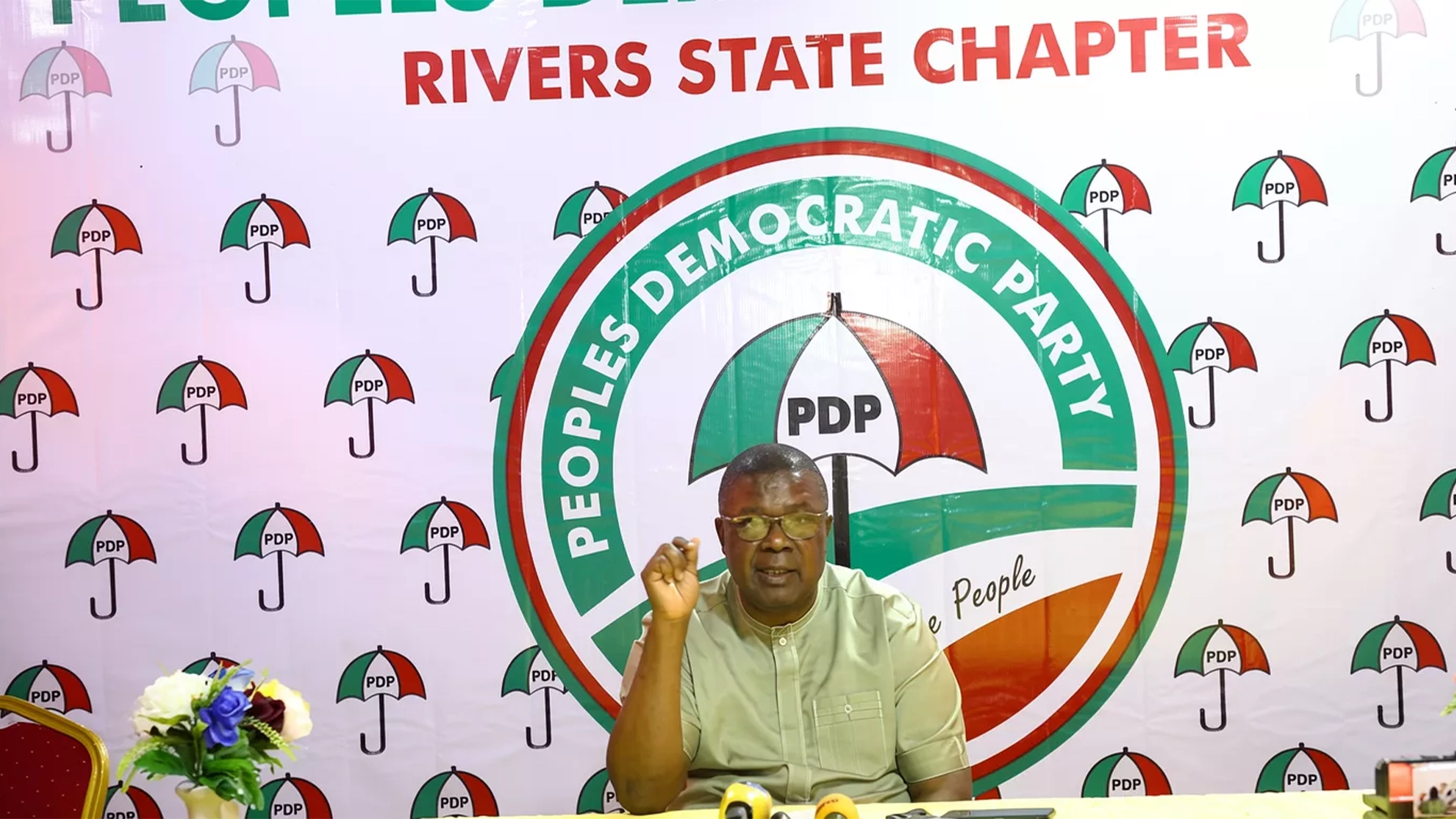The immediate past governor of Kogi State, Yahaya Bello, recently declared a one-party state in Kogi, eliciting concerns both for the fate of opposition politics in the state and rivals within the ruling All Progressives Congress (APC), SEYE OLUMIDE reports.
Former Governor Yahaya Bello and his successor, Governor Usman Ododo, understandably call the shots in the Kogi State chapter of the ruling All Progressives Congress (APC), even as revelations show emerging discontent in this camp towards Tinubu.
From the onset, Bello’s camp has been on the fringe of the Tinubu project, traceable to the 2015 governorship election controversies after the death of APC candidate, Prince Abubakar Audu, and the emergence of Bello as Audu’s replacement ahead of the lawmaker representing Ikeja Federal Constituency in Lagos State, James Faleke, who was Audu’s running mate and President Tinubu’s nominee.
To edge out Faleke, it was believed that Tinubu’s influence had been deliberately weakened by the cabals who dictated the pace under the administration of former President Muhammadu Buhari.
The second scenario played out in the run-up to the 2023 presidential election, which had both President Tinubu and erstwhile Governor Bello in the race for the APC’s presidential ticket. Although Tinubu emerged as the APC candidate in a landslide victory, it was not without a fight from Bello.
At the APC presidential primary held at Eagles Square, Abuja, where notable aspirants like former Ogun State governor, Ibikunle Amosun, and Senator Godswill Akpabio, among others, withdrew from the race and stepped down for Tinubu, the former Kogi governor fought to the end. Prior to the election, Bello had walked out on the APC Northern Governors’ Forum meeting in opposition to its decision to back zoning of the party’s presidential ticket to the South.
Similarly, Bello allegedly opposed the nomination of Duro Meseko, a nominee of Faleke, for the office of Deputy National Publicity Secretary in the APC National Working Committee (NWC), preferring his own candidate. The long-drawn battle was eventually resolved in Meseko’s favour after President Tinubu’s intervention.
But politics is a game of numbers, and, as it is often said, there are no permanent enemies. Bello bounced back into Tinubu’s good books after the latter’s victory in the general election, also winning in Bello’s Kogi State. Bello was visible in the electioneering process, mobilising support for Tinubu.
The post-election rapprochement has seen Bello and Governor Ododo visit the president on several occasions, with Bello, at every opportunity, openly declaring support for Tinubu’s second term.
At a rally in Isanlu, Yagba East headquarters, on July 5, 2025, to receive decampees into the ruling party, Bello said: “Kogi is a one-party state and, by the special grace of God, come 2027, there shall be no vacancy in Aso Rock. I want Mr President to hear it in Brazil: on your mandate, we shall stand. President Bola Ahmed Tinubu’s mandate was given to him willingly by the Nigerian people; Nigerians are begging him to hold this mandate till 2031.”
Subsequently, Bello, apparently cashing in on the renewed relationship, aspired for the national chairmanship of the APC. He was said to have sought the president’s nod following the dramatic resignation of erstwhile chairman, Dr Umar Ganduje, arguing that the seat should go to the North Central.
This did not materialise, and it did not sit well with Bello and his supporters, who saw the president’s apparent snub as a continuation of political persecution from Aso Rock.
Matters came to a head when a certain member of the party, in a widely circulated diatribe against President Tinubu, believed to have the imprimatur of the powers-that-be in Kogi, alleged “a concerning pattern of neglect and marginalisation of the Ebira ethnic group by Yoruba leaders who have occupied the presidency.”
The statement followed the nomination and endorsement of Prof. Nentawe Yilwatda as the National Chairman of APC by members of the National Executive Council (NEC) in Abuja on Thursday, July 24.
The member argued: “This is not a baseless sentiment; it is evident in appointments, power dynamics, and the consistent sidelining of capable Ebira individuals from national decision-making tables. From the era of former President Olusegun Obasanjo to the current administration of President Bola Ahmed Tinubu, the trend has been the same, if not worse.”
He added: “Today, under President Tinubu, history is once again repeating itself. If not for the timely intervention of late President Muhammadu Buhari, the Ebira people might never have produced a state governor. Tinubu had strongly backed Prince Abubakar Audu with the intention of pairing him with his loyal associate, James Faleke, as deputy governor. His involvement in Kogi politics has always been strategic, with long-term goals in mind.”
He continued: “Fast forward to now: Faleke’s visibility is growing in Ebiraland, evidenced by the installation of streetlights and subtle infrastructural presence. This raises a crucial question: Is Faleke strategically positioning himself to contest the Kogi governorship in 2027?
The signs are clear, and the Ebira people must pay close attention. To make matters worse, most of Governor Bello’s loyalists and allies have been either ignored or displaced within the APC national structure, leaving Ebira interests unprotected at the highest levels of the party.”
The Ebira people were urged to learn from history and reminded that, as 2027 approaches, they must not walk blindly into another era of political manipulation and betrayal. They must unite and prepare Plan B and also develop a strong, inclusive, and strategic political front to safeguard the future of the Ebira nation. 2027 will not forgive the unprepared.
There has been no official statement distancing APC leaders in Kogi Central from the direct attacks on Tinubu.The phrases “we must unite and prepare a Plan B” and “we should begin to mobilise across party lines” ruffled feathers in the wider Kogi APC family, especially among the pro-Tinubu camp in Kogi West, who suspected a potential romance with the opposition.
The large attendance at the July 14 maiden meeting of the African Democratic Congress (ADC) in Lokoja further fuelled this suspicion. Rumours even linked some APC insiders with opposition elements, including a former senator and a former bank chief, both long-time allies of former Vice President Atiku Abubakar.
In response, Senator Sunday Karimi, representing Kogi West and a strong supporter of Tinubu, said Kogi had no “Plan B” but was united in its resolve to support President Tinubu’s 2027 re-election bid. He said: “Let me be very categorical: for us in Kogi State, the re-election of President Bola Ahmed Tinubu is our sole option. There is no two ways about it. We will stand firmly with Tinubu, the leader we know and trust.
There will be no wavering, no second-guessing. To the doubters: it’s time to smell the coffee.”
Kogi gladiators in Tinubu’s 2027 calculations
Kogi West
President Tinubu is believed to be in safe hands in the Kogi West Senatorial District. His strongest backbone remains Kogi-born James Faleke, House of Representatives member for Ikeja Federal Constituency. The fourth-term lawmaker is well-grounded in Kogi State, particularly in the west zone, where he has used his office to facilitate appointments and empowerment for loyalists and communities.
Senator Karimi, with a multi-sectoral constituency and personal projects, such as the building of a Military Forward Operating Base, roads, water, electricity, and education infrastructure, is a dependable ally of Tinubu. Recently, he launched a N300 million bursary award for students across the three senatorial districts in the name of the Tinubu Support Group.
House of Representatives members for Yagba East/Yagba West/Mopamuro, Kabba/Bunu/Ijumu, and Lokoja/Kotonkarfe federal constituencies, Leke Abejide, Salman Idris, and Aguye Suleiman Danladi, are also mobilising for Tinubu’s second term. While Abejide, a second-term lawmaker, is officially in the ADC, he has not hidden his support for Tinubu and the APC, his original political platform prior to his back-to-back elections in 2019 and 2023.
Abejide’s record performance, including annual payment of West African Examination Council (WAEC) fees for students in both private and public schools, road construction, health projects, and education infrastructure, has been publicly attributed to Tinubu’s support. “My constituency gave President Tinubu the highest number of votes in 2023, and we will do it again in 2027,” he declared recently.
APC Deputy National Publicity Secretary, Duro Meseko, and Suleiman Baba Alli of the North Central Development Commission also stand out as pillars of Tinubu’s re-election drive in Kogi West.
The strong traditional opposition of the PDP in Kogi West is no longer visible. The party’s base has waned with the exit of figures like Senator Tunde Ogbeha and Senator Dino Melaye to ADC. Many PDP local government chairmen and their executives have also decamped to the APC. Meanwhile, Abejide’s influence as the sole ADC lawmaker and long-time financier of the party has frustrated ADC coalition efforts, as he openly campaigns for Tinubu’s re-election while dismissing the coalition as “outsiders.”
Kogi East
In Kogi East Senatorial District, Tinubu can count on the support of Murtala Ajaka, candidate of the Social Democratic Party (SDP) in the 2023 governorship election. Ajaka, who once served as APC deputy national publicity secretary, left the ruling party for SDP after being excluded from the governorship primaries. He came second in the controversial election, winning all nine local councils in Kogi East.
Although still in SDP, Ajaka has openly shown his support for Tinubu. Senator Jibril Isa, Minister of Steel Development, Prince Shuaibu Audu (son of late Governor Abubakar Audu), and the three House of Representatives members for Dekina/Bassa, Ankpa/Omala/Olamaboro, and Idah/Igalamela-Odolu/Ibaji/Ofu constituencies are all backing Tinubu’s second term.
However, discontent is brewing over Ododo’s appointments. Out of 21 commissioners in the state, Kogi East, with nine local governments, has only three slots. In contrast, Kogi Central has 10 commissioners, including key offices such as Accountant General, Auditor General, and Head of Service, alongside the Governor and state APC chairman.
Opposition leader Austin Okai, of Igala extraction, alleged that Ododo’s appointments “based on tribal affiliation” have deepened existing regional tensions.
“Okene, with three commissioners, outweighs the entire Kogi East with nine local governments but only three commissioners,” Okai said. “Leadership should be guided by unity and inclusivity, not tribalism and favouritism.”
Kogi Central
Kogi Central delivered the largest votes in the last two governorship elections won by the APC. Barring the unforeseen, Tinubu’s 2027 project is expected to enjoy the support of Bello and Ododo. However, the presidential and senatorial election results of 2023 showed weaker numbers compared to the governorship polls in the zone.
The role of Senator Natasha Akpoti-Uduaghan of PDP adds another dimension. She has built a strong base in Kogi Central, winning her Senate seat from Bello’s camp through a court decision. Despite her suspension from the Senate, Natasha retains grassroots support through youth empowerment, jobs, and education projects.
How Tinubu fares in Kogi Central will depend on how Bello’s camp and Natasha’s supporters align ahead of 2027.
Factor of Kogi Governorship 2027
The next governorship election will also shape Tinubu’s second-term calculations in Kogi. While Bello and his loyalists insist Ododo’s second term is non-negotiable, this does not sit well with Tinubu’s allies in Kogi West and East.
Abejide has openly endorsed 16 years of Kogi Central leadership, eight years each for Bello and Ododo—with power shifting to Kogi West in 2031. However, the Faleke/Karimi camp in Kogi West and Ajaka in Kogi East strongly oppose this.
Kogi East was in power for 17 years until 2015, when Audu’s death paved the way for Bello. After eight years, expectations were that power would shift to the West in 2024. Bello instead supported Ododo, his kinsman, ensuring Ebira continuity. Recently, Bello boasted in a viral video that “after Ododo, the next governor is coming from inside.”
Whatever effect Bello’s declaration portends for APC unity, the governorship election will take place several months after the presidential poll, leaving time for fence-mending. Whether that time will be enough remains to be seen.






